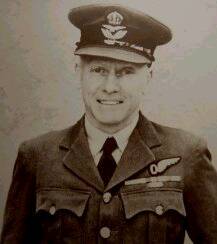Dinwoodie, Hubert
- Date of birth:
- March 24th, 1896 (Christchurch, Great Britain)
- Date of death:
- August 28th, 1968 (Ringwood, Hampshire, Great Britain)
- Nationality:
- British
Biography
Do you have more information about this person? Inform us!
- Period:
- First World War (1914-1918)
- Rank:
- Second-Lieutenant
- Unit:
- 1/76th Trench Mortar Battery, 76th Brigade, 3rd Division, British Army
- Awarded on:
- May 31st, 1916
- Period:
- Second World War (1939-1945)
- Rank:
- Acting Squadron Leader
- Awarded on:
- June 11th, 1942
HM Birthday Honours
- Period:
- Second World War (1939-1945)
- Rank:
- Squadron Leader
- Unit:
- No. 5140 Bomb Disposal Squadron, Royal Air Force
- Awarded on:
- February 4th, 1947
Squadron Leader Dinwoodie and corporal Garred were sent at once to Lubeck, to report on the situation and, if possible, to clear the dangerous missiles. Despite the very considerable risk involved, Squadron Leader Dinwoodie and Corporal Garred proceeded to defuse one of the bombs in an attempt to discover the cause of the explosion. They found that the accident was due to defective German workmanship or design.
With extreme care, Squadron Leader Dinwoodie, assisted by Corporal Garred, rendered the eleven bombs safe. From the information obtained by them, it was possible to minimise the danger and clear the trains. The docks at Lubeck are situated in the centre of the town, therefore the explosion of the contents of the trains would inevitably have wrecked the whole area and caused many casualties. Throughout the operation, Squadron Leader Dinwoodie displayed cold blooded heroism and initiative in extremely critical circumstances.
Finally promoted to the rank of Wing Commander.
- Period:
- First World War (1914-1918)
- Period:
- First World War (1914-1918)
- Period:
- Second World War (1939-1945)
- Period:
- Second World War (1939-1945)
- Period:
- Second World War (1939-1945)










